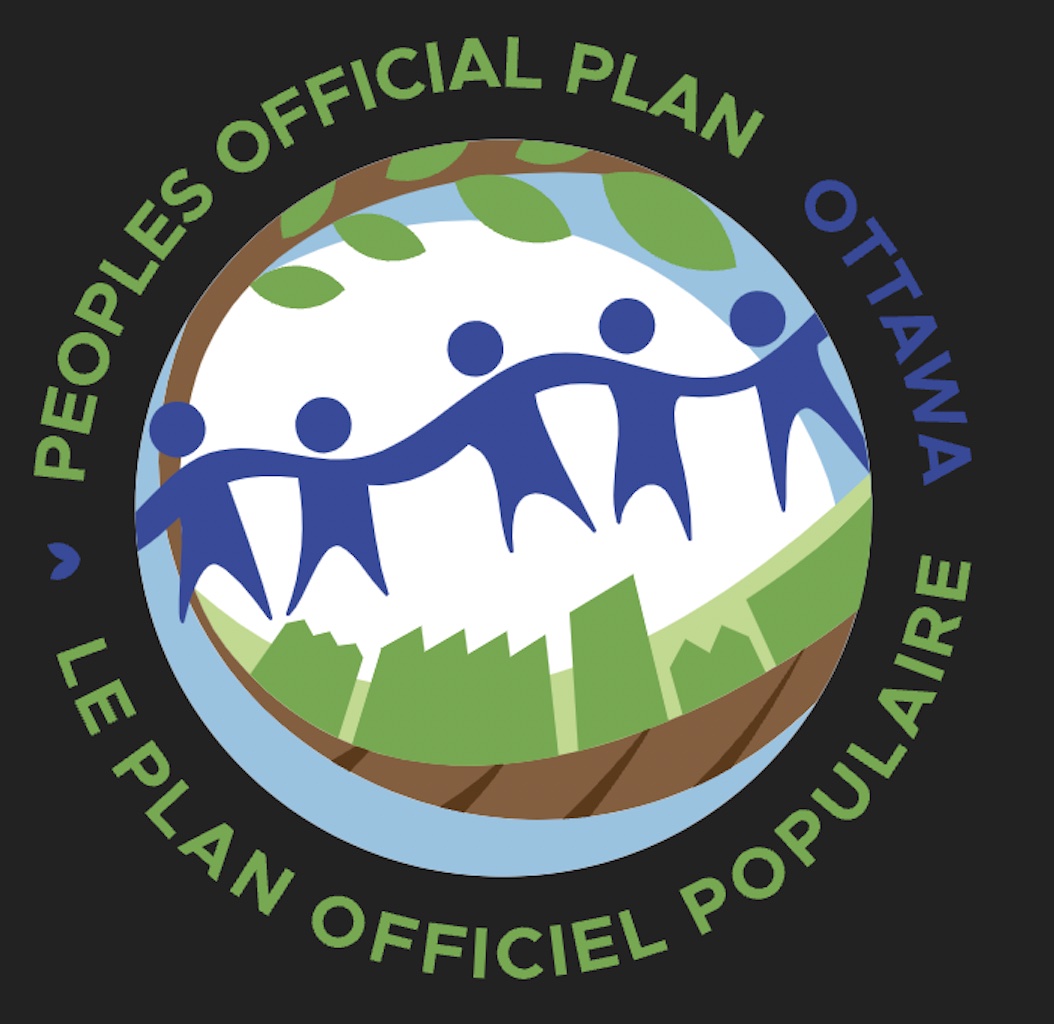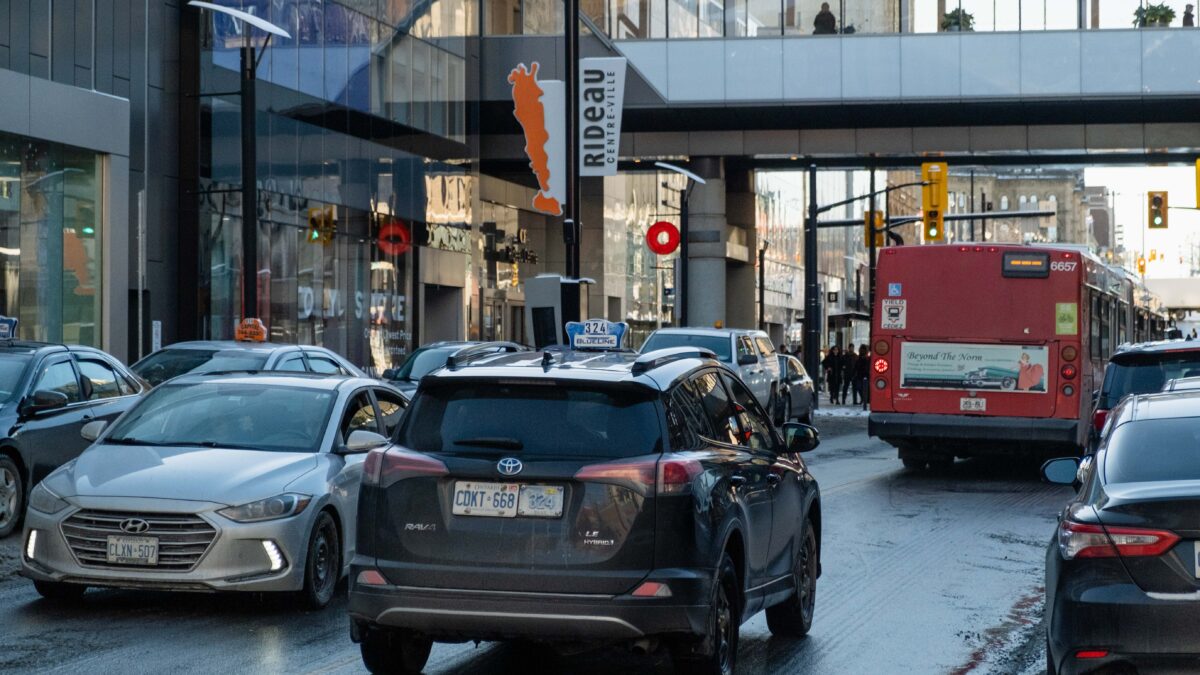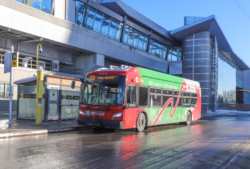The recently approved 2023 City of Ottawa budget got a chilly reception from environmental advocates, who described it as a “status quo” blueprint with no significant advances in the fight against climate change.
Ecology Ottawa and other advocacy groups, allied under the banner of the “People’s Official Plan” coalition, issued an open letter on Jan. 31 urging a variety of measures aimed at reducing the city’s carbon footprint, protecting green space and promoting other ecological objectives.
Nothing affects citizens more than climate change and the need for climate action, Ecology Ottawa executive director Alice Irene Whittaker said at the POP coalition’s Feb. 27 virtual press conference about the city budget.
“Between the deracho last year, the canal this year, we are feeling this now — residents are feeling the impacts already of higher temperatures and worsening climate impacts,” said Whittaker. “And that is why the climate needs to be such a priority in the budget now, but looking forward, as well.”


The open letter said the key priority for the city should be “stable and predictable” funding of the city’s climate change action plans.
“Residents of Ottawa have left not a shadow of doubt that we are alarmed at the progressive loss of our urban canopy and dismayed at the lack of equity in urban forest and greenspace outcomes,” the letter stated.
Meanwhile, planned city expenditures on projects such as “road widening” to ease traffic congestion were targeted as “fossil fuel infrastructure” encouraging more car travel rather than public transit.
The POP letter warned against “investments in road widening and expansions where medium-term induced demand will reproduce congestion and aggravate GHG (greenhouse gas) pollution.”
“The budget is daunting and complex, and we want to cut through that and help people understand what is going on, to be able to take action on their own,” said William van Geest, program coordinator at Ecology Ottawa, before the budget was passed by city council on March 1.
‘Between the deracho last year, the canal this year, we are feeling this now — residents are feeling the impacts already of higher temperatures and worsening climate impacts.’
— Alice Irene Whittaker, executive director, Ecology Ottawa
The People’s Official Plan letter was submitted to councillors, the mayor and city staff as part of budget deliberations.
While the budget addressed some climate concerns, Ecology Ottawa and other members of the coalition argued that it did not reflect the urgency of the climate emergency.
The budget directed a $5-million expenditure toward the city’s Climate Change Master Plan, and there was a commitment to evaluate projects with environmental objectives in mind.


The budget also offered some funding to improve the urban forest.
Environmentalists pointed out the contradiction between funds spent on road widening while the city is simultaneously working toward a reduction of carbon emissions to zero in 30 years.
Van Geest says road widenings pose an acute threat to Ottawa’s urban forest, through its destruction of trees and wildlife.
“Road widenings are not necessarily detrimental to the urban forest,” Vivi Chi, the city’s director of transportation planning, told Capital Current in an email. “The city has to undertake an environmental assessment study for all major arterials and rapid transit facilities to address the impacts. These projects have mitigation measures for loss of trees, with replanting and other landscaping mitigation.”
Ottawa’s urban forest includes all trees within the urban boundary.
But road widenings also encourage greater use of vehicles, the vast majority of which release pollutants. Van Geest explained that by widening the road, there will be more vehicles that inevitably increase greenhouse gas emissions.
Green Organic Zero-Waste Infographic @ Sofia Donato
Road widenings have other impacts that harm the land, said van Geest.
“Even when a widening doesn’t destroy trees, it still poses a significant threat to Ottawa’s ecosystem. Asphalt is basically impermeable, and the ground can’t absorb stormwater quickly enough, which causes flooding with attendant ecological damage,” he said.
‘Even when a widening doesn’t destroy trees, it still poses a significant threat to Ottawa’s ecosystem. Asphalt is basically impermeable, and the ground can’t absorb stormwater quickly enough, which causes flooding with attendant ecological damage.’
— William van Geest, program coordinator, Ecology Ottawa
Reducing reliance on cars is not possible if car infrastructure is continually funded, environmentalists argue. In place of road widenings, they say, the installation of cycling lanes and more public transit will encourage the use of these modes of transportations and positively affect Ottawa’s climate change agenda.
When infrastructure for certain types of transportation is built, people are encouraged to use that system, explained van Geest, adding that this phenomenon is very well known to urbanists around the world.
“Ottawa doesn’t seem to acknowledge it,” he said. “And they say they want to reduce reliance on cars.”
Ecology Ottawa wants the city to use its land in more environmentally conscious ways. Unlike many cities in Europe, such as Amsterdam, Ottawa was not built to promote walking or cycling to work, school or shopping centres. If more walkable communities were built, road widenings wouldn’t be a budget priority.
But Chi offered some consolation noting that the city’s draft Transportation Master Plan “includes policies and actions to build climate resiliency, and recognizes the importance of providing shade trees along transportation corridors.”




